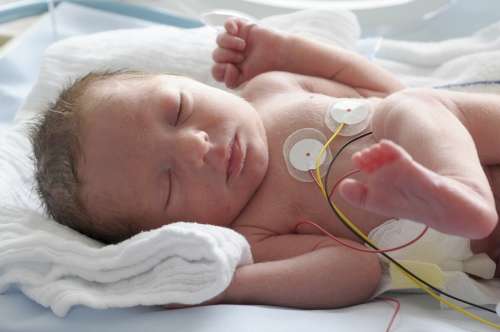Parents of premature babies get confidence boost from home-from-hospital project

Researchers from the University of Bristol have found new parents benefit from help to prepare them to bring their premature babies home from hospital.
A team led by Professor Peter Fleming and Dr Jenny Ingram, from the School of Social and Community Medicine, examined the effects of a parent-orientated discharge planning process, known as the Train-to Home intervention.
The project was funded by the National Institute for Health Research Health Services and Delivery Research (HS&DR) Programme, and published its results today in The BMJ Open.
More than 90 per cent of babies born at 27 weeks or more gestation survive, and are later discharged home. Many will have stayed in neonatal intensive care and in high dependency and special care units.
Many parents returning home feel unprepared and lack the confidence to care for their baby. They often find themselves seeking emergency and out-of-hours care.
The Train-to-Home aimed to increase parents' confidence in caring for their baby, thereby reducing hospital stay and lessening the use of healthcare services after discharge. It estimates the baby's likely discharge date, and displays it on a train graphic with five labelled carriages - breathing, feeding, growth, temperature and sleeping.
Parents were given gestation-specific leaflets with questions to discuss with staff based on the five labels, to help improve their preparedness for returning home.
Professor Fleming said: "Any increase in parental confidence to care for their baby could reduce their length of stay in hospital and possibly reduce healthcare resource use after discharge, making potentially significant healthcare savings. Our research shows that Train-to-Home can contribute to family-centred care."
The researchers recruited parents of babies born between 27 and 33 weeks from four neonatal units in South West England. They found parents who received the intervention understood their baby's needs better and there were fewer visits to emergency departments after going home. As a consequence, the costs of care after discharge from hospital were reduced.
More information: 'Does family-centred neonatal discharge planning reduce healthcare usage? A before and after study in South West England' by Ingram et al in The BMJ Open, bmjopen.bmj.com/content/6/3/e010752.full


















